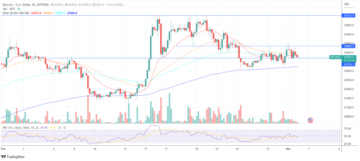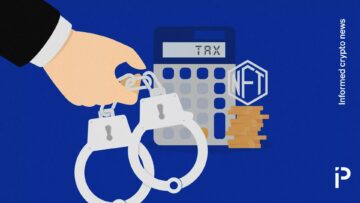
“`html
Cryptocurrency represents a digital or virtual currency that operates via an automated payment network. It lacks physical representation, being simply a quantifiable value recorded within an informational protocol, often without a unique code.
The cryptocurrency system is marked by anonymity since it does not store data about the digital wallet’s owners, making access key verification impossible. Transactions are anonymous and can involve various forms of exchange: using cryptocurrency for online purchases, converting through exchange systems, or swapping one digital currency for another. Payment characteristics of cryptocurrency resemble physical cash transactions more closely than electronic banking.
Transactions in cryptocurrency are conducted directly, eliminating the need for middlemen. Completed transactions are irreversible; errors or misdirected transfers are non-recoverable. Control over digital funds lies solely with the access key holder, immune to third-party interference. Technologies like blockchain and consensus ledgers prevent the problem of double spending, and transaction details, while not encrypted, are publicly accessible without registration in the system.
Ready to jump into the crypto waters this spring? UEX.FINANCE is your destination for a secure and innovative trading experience, whether you’re an adept trader or a newcomer. Start your investment voyage with UEX.FINANCE Crypto Exchange.
The term “cryptocurrency” entered usage in 2011 when Forbes Magazine published an article about Bitcoin titled “Cryptographic currency,” marking the initial use of this term. Initially, digital currencies were presented as a form of electronic cash by their developers.
Digital currency issuance follows a specific protocol, with the system resembling a lottery where rewards depend on factors such as the speed of computational problem-solving (mining) and resource control (forging). Sometimes, all or part of a digital currency’s issue can be performed via initial coin offerings (ICO), with technologies varying or combing elements.
The economic relevance and legal status of cryptocurrencies vary significantly across different countries, with laws tailored to each jurisdiction. While banned outright in certain places, cryptocurrencies find recognition elsewhere as a payment method, electronic asset, or commercial product, often subject to country-specific limitations.
The Evolution of Cryptocurrency Exchanges
Cryptocurrency exchanges are digital marketplaces facilitating the trading of digital currencies, such as swapping different cryptocurrencies or exchanging cryptocurrencies for fiat money. These platforms have burgeoned into key venues for engaging with cryptocurrency assets in recent years.
Prior to mid-2013, most digital currencies, except for Ripple, were derived from Bitcoin’s codebase. Post-July 2013 saw the emergence of diverse platforms supporting cryptocurrencies in various forms like trading, retail, and instant messaging. Examples include Nxt, Mastercoin, and BitShares.
Altcoins, cryptocurrencies introduced after Bitcoin’s debut, sought to address Bitcoin’s shortcomings. Litecoin, for instance, offers faster transactions, whereas Namecoin aimed to decentralize DNS servers. Each altcoin brings unique features to the digital currency space.
Distinguishing Factors Amongst Altcoins
- Ethereum has evolved into a broader cryptocurrency platform.
- Ripple presents a centralized system with similarities to Bitcoin.
- Dash emphasizes enhanced anonymity provisions.
- Other cryptocurrencies emerge as forks of existing ones, with specific amendments delineating them.
Keep an eye on cryptocurrency market news; market rates can soar due to investor groups or corporate adoption. Staying informed and reacting promptly to such developments is critical since they heavily influence market dynamics.
Cryptocurrency Trading Tips
- Avoid speculative waiting for value increase if the rate is already peaking.
- Consider trading volumes and capitalization to anticipate market trends.
- Monitor order quantities to gauge buying and selling activities.
- Patience is key; market rates can spike after a period of stability.
Successful cryptocurrency trading demands tool literacy, financial acumen, and a composed mindset. Only invest disposable income to maintain your financial security. Cryptocurrency remains a high-potential asset class, continuously expanding in variety and reach, offering ample opportunities for fiscal advancement.
Disclaimer: This article is sponsored content and does not involve any journalistic or editorial input from Hindustan Times. Hindustan Times does not endorse the article’s contents or expressed views. Readers engage with the content by choice, absolving Hindustan Times from liability concerning the article’s statements, opinions, or claims.
Be advised that cryptocurrency products and NFTs are unregulated and pose significant risk. No regulatory protection exists for losses from these transactions.
Hindustan Times assumes no liability for assertions made in this content. Engaging with the content signals acceptance that Hindustan Times is not liable for any legal claims. Information presented is solely for enlightenment and does not constitute financial advice.
Tap into a wealth of Benefits! Everything from expert newsletters to real-time stock monitoring, immediate news updates, and a curated newsfeed await you. It’s just a click away—Login Now!
“`
#UEX.Finance #Cryptocurrency #Exchange #Overview
- SEO Powered Content & PR Distribution. Get Amplified Today.
- PlatoData.Network Vertical Generative Ai. Empower Yourself. Access Here.
- PlatoAiStream. Web3 Intelligence. Knowledge Amplified. Access Here.
- PlatoESG. Carbon, CleanTech, Energy, Environment, Solar, Waste Management. Access Here.
- PlatoHealth. Biotech and Clinical Trials Intelligence. Access Here.
- Source: https://cryptoinfonet.com/crypto-trading/overview-of-uex-finance-cryptocurrency-exchange/
- :has
- :is
- :not
- :where
- 2011
- 2013
- a
- About
- acceptance
- access
- accessible
- across
- activities
- acumen
- address
- adept
- Adoption
- advancement
- advice
- advised
- After
- aimed
- All
- already
- Altcoin
- amendments
- amongst
- an
- and
- Anonymity
- Anonymous
- Another
- anticipate
- any
- ARE
- article
- AS
- asset
- asset class
- Assets
- assumes
- Automated
- await
- Banking
- banned
- BE
- being
- Bitcoin
- bitshares
- blockchain
- Brings
- broader
- Buying
- by
- CAN
- capitalization
- Cash
- centralized
- certain
- characteristics
- choice
- claims
- class
- click
- closely
- code
- Codebase
- Coin
- commercial
- Completed
- composed
- computational
- concerning
- conducted
- Consensus
- constitute
- content
- contents
- continue
- continuously
- control
- converting
- Corporate
- countries
- country-specific
- critical
- crypto
- cryptocurrencies
- cryptocurrency
- Cryptocurrency Assets
- Cryptocurrency Exchange
- cryptocurrency market
- cryptocurrency trading
- CryptoInfonet
- curated
- currencies
- Currency
- data
- debut
- decentralize
- decision
- demands
- depend
- Derived
- destination
- details
- developers
- developments
- different
- digital
- digital currencies
- digital currency
- directly
- diverse
- dns
- does
- double
- due
- dynamics
- each
- Economic
- Editorial
- Electronic
- elements
- eliminating
- elsewhere
- emerge
- emergence
- emphasizes
- encrypted
- endorse
- engage
- engaging
- enhanced
- entered
- Errors
- everything
- evolution
- evolved
- examples
- Except
- exchange
- Exchanges
- exchanging
- existing
- exists
- expanding
- experience
- expert
- expressed
- eye
- facilitating
- factors
- faster
- Features
- Fiat
- Fiat Money
- finance
- financial
- financial advice
- financial security
- Find
- Fiscal
- follows
- For
- Forbes
- Forging
- Forks
- form
- forms
- from
- funds
- gauge
- Group’s
- Have
- heavily
- holder
- HTML
- HTTPS
- ICO
- if
- immediate
- immune
- impossible
- in
- include
- Income
- Increase
- influence
- information
- Informational
- informed
- initial
- initial coin offerings
- initially
- innovative
- input
- instance
- instant
- Instant Messaging
- interference
- into
- introduced
- Invest
- investment
- investor
- involve
- issuance
- issue
- IT
- jump
- jurisdiction
- just
- Key
- lacks
- Laws
- ledgers
- Legal
- liability
- lies
- like
- limitations
- LINK
- Litecoin
- literacy
- losses
- lottery
- made
- magazine
- maintain
- Making
- marked
- Market
- Market News
- Market Trends
- marketplaces
- marking
- mastercoin
- messaging
- method
- middlemen
- Mindset
- Mining
- money
- monitoring
- more
- most
- Navigation
- Need
- network
- newcomer
- news
- Newsfeed
- Newsletters
- NFTs
- no
- nxt
- of
- offering
- Offerings
- Offers
- often
- on
- ONE
- ones
- online
- online purchases
- only
- operates
- Opinions
- opportunities
- or
- order
- outright
- over
- overview
- owners
- part
- payment
- payment method
- performed
- period
- physical
- Places
- platform
- Platforms
- plato
- Plato Data Intelligence
- PlatoData
- pose
- presented
- presents
- prevent
- Problem
- problem-solving
- Product
- Products
- promptly
- protection
- protocol
- publicly
- published
- purchases
- quantifiable
- quantities
- Rate
- Rates
- reach
- reacting
- readers
- Reading
- real-time
- recent
- recognition
- recorded
- Registration
- regulatory
- relevance
- remains
- representation
- represents
- resembling
- resource
- retail
- Rewards
- Ripple
- Risk
- saw
- secure
- security
- Selling
- Servers
- shortcomings
- signals
- significant
- significantly
- similarities
- simply
- since
- soar
- solely
- sometimes
- sought
- Space
- specific
- speculative
- speed
- Spending
- spike
- Sponsored
- spring
- Stability
- start
- statements
- Status
- staying
- stock
- store
- subject
- such
- Supporting
- swapping
- system
- Systems
- tailored
- Technologies
- term
- than
- that
- The
- their
- Them
- These
- they
- third-party
- this
- Through
- times
- titled
- to
- tool
- trader
- Trading
- trading volumes
- transaction
- Transaction Details
- Transactions
- transfers
- Trends
- unique
- unregulated
- Updates
- Usage
- use
- using
- value
- variety
- various
- vary
- varying
- venues
- Verification
- via
- views
- Virtual
- virtual currency
- volumes
- Voyage
- Waiting
- Waters
- Wealth
- were
- when
- whereas
- whether
- while
- with
- within
- without
- years
- you
- Your
- zephyrnet











